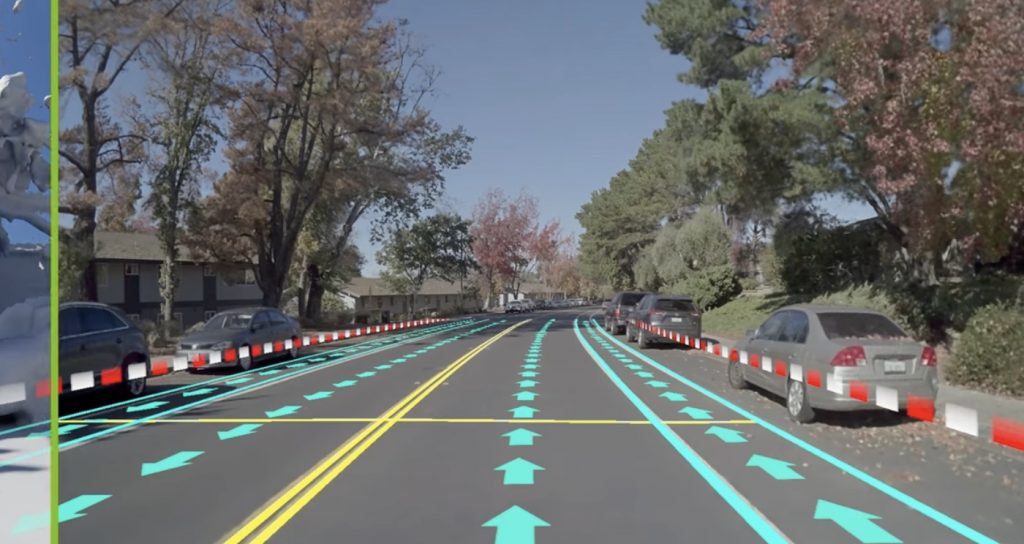
NVIDIA is one of those companies that can stay in stealth mode — you’ll forget about it until you see another strategic alliance or the fact that it’s market cap places it at No. 1 or No. 2 in the world. It’s role and presence is so pervasive in different sectors that the company can be taken for granted. It’s become a major player in artificial intelligence computing, which will be essential to electrified autonomous vehicles being accurately integrated into vehicle-to-everything (V2X) technology; and gaming chips is another large part of its business during a time when gaming continues to bring in even more revenue than movies for entertainment companies.
It’s become visible enough for China to use it as a reaction to Washington for setting more control over the Chinese chip sector. The Chinese agency that charged the violations didn’t elaborate on how NIVIDIA actually violated China’s anti-monopoly laws, according to published reports. Last week, the U.S. caused the flare up by launching its third crackdown in three years on China’s semiconductor industry.
On the topic of V2X technology, vehicles in the near future will have to share real-time information with everything from other cars to pedestrians and traffic lights. That’s still being worked out by regulators, but NVIDIA is expected to be one of the main companies creating the pathway for autonomous vehicles to reach mass market.
The Santa Clara, Calif.-based company designs and supplies graphics processing units (GPUs), application programming interfaces (APIs) for data science and high-performance computing. It also produces a system on a chip units (SoCs) for mobile computing and the automotive market.
As of Monday at 9:30 am pacific time, it came in at No. 2 behind Apple’s $3.73 trillion in market cap; with NVIDIA trading at $3.39 trillion. It had been No. 1 for several months. Microsoft, Amazon, and Alphabet (Google) came in next on the ranking.
The tech giant says that more than 40,000 companies use NVIDIA AI technologies, and more than 4 million developers now create create thousand of applications for accelerated computing.
Chipmakers have been eyeing NVIDIA as the ‘one to beat.’ Automakers and their dealer networks create virtual showrooms and car configurators, develop in-vehicle AI assistants, and validate autonomous driving technology — all with NVIDIA AI, Omniverse, and accelerated computing platforms.
One of the most interesting parts of the company’s story is that it’s had the same CEO, Jensen Huang, since its inception in 1993. He’s considered to be a persuasive, hard-working leader to work for, and is one of the very few corporate lone founders to still be running the show.
Lucid Gravity coming up: Lucid has started production at its Casa Grande, Arizona factory of its second offering, the Gravity all-electric SUV. The three-row Gravity will begin sales with the Grand Touring version, and it will start at $96,550. More affordable versions are expected to roll out but not until late 2025, and it’s unclear when exactly deliveries will begin. The Air sedan has a $70,000 starting price, and its getting strong ratings from reviewers.
EVPKI simplifying charging: SAE Industry Technologies Consortia is working with the U.S.’s Joint Office of Energy and Transportation to create a framework that will enable secure automatic authentication as soon as drivers plug in – a capability known as “Plug & Charge.” That will simplify the charging process so that electric vehicles can go to any public charging station and automatically start charging, with no payment processing step required. It’s taken shape through SAE’s Electric Vehicle Public Key Infrastructure (EVPKI) Consortium. The SAE EVPKI Certificate Trust List Requirements (CTL) is the basis for onboarding industry PKI suppliers to the new framework. It will mean faster, automated charging and improved cybersecurity protocols. The consortia is made up of automakers, charging networks, technology suppliers, DOE and DOT, and SAE.
Nex-gen Honda is promising: Honda is committed to making solid-state batteries the leading technology for bringing electric vehicles to a new level — up to 620 miles per charge. Honda says that it’s upcoming solid-state batteries will be 50% smaller, 35% lighter, and 25% cheaper to manufacture than current liquid-based lithium-ion cells. The solid electrolyte cells could also be much safer than what is readily available on the market today, and it can accept much higher charging speeds. The Japanese automaker says it will be available by the end of this decade — and a version that goes 776 miles will come out sometime around 2040.
AI and investigative reporting: Journalists are gaining access to artificial intelligence resources that are available now — some of it free, and some of it for a fee, such as ChatGPT’s GPTs. Luiz Fernando Toledo, a Brazilian investigative journalist well known on CNN and several other media outlets, offers several signs of hope about media professionals using these new resources. He and his work colleagues have had success with a few free offerings in the AI space, too. This is from my Substack ‘Discovery’ column, and offers a look at the role AI can play in a sector that’s been hard hit by economic and technological changes for those working in the field.



